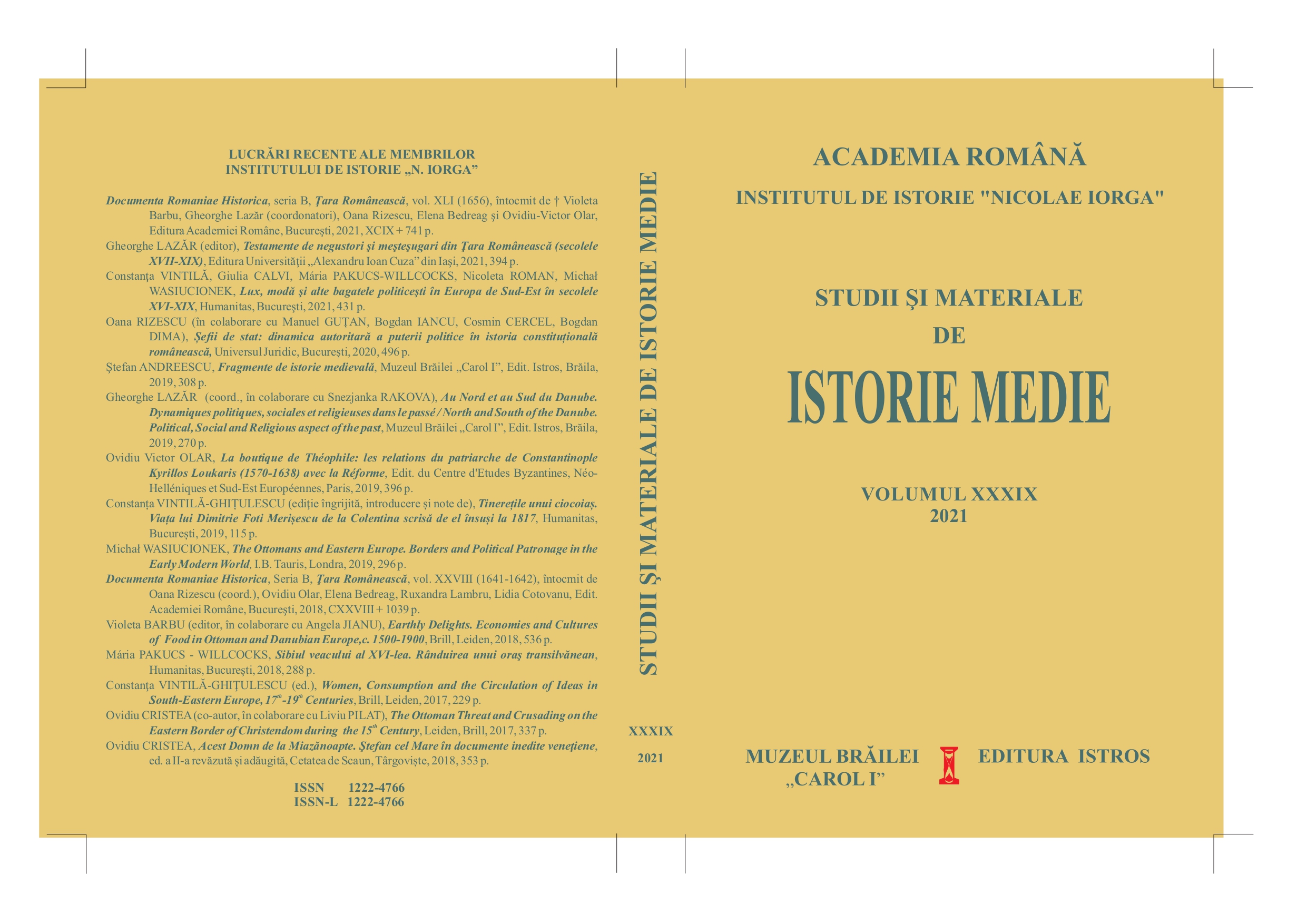Dispozițiile testamentare ale marelui medelnicer Pantazi Primicheriu şi disputa în jurul stăpânirii averii sale
The testamentary dispositions of the great cup-bearer Pantazi Primicheriu and the dispute over his inheritance
Author(s): Mariana LazărSubject(s): History, Economic history, Local History / Microhistory, Social history, Middle Ages, 18th Century
Published by: Institutul de Istorie Nicolae Iorga
Keywords: testaments; 18th century; Wallachia; Cantacuzino family; inheritance disputes;
Summary/Abstract: The judicial norms and practices that regulated inheritance constitute an important chapter in the history of the family throughout different historical periods. The inheritance dispositions, settled by the testament, reflected first and foremost the testator’s free will of distributing his wealth. As a result, the testamentary dispositions frequently reveal the nature of the relations within a certain family. It is not uncommon for some testamentary dispositions, especially for those regarding the wealth, to cause disputes and controversies. Sometimes, the discontented relatives took the inheritance dispute to justice. Unsurprisingly, it also happened in 18th century Wallachia, when such controversies were sometimes brought to the lord’s judgement. If the plaintiffs were disappointed by the lord’s sentence, the case might complicate even more, as they could seek justice to a higher court for inheritance disputes, such as the Constantinople patriarchal one. Such was the case of the great cup-bearer Pantazi Primicheriu’s inheritance, which was fiercely disputed between his last wife, Safta Cantacuzino, Constantin Cantacuzino’s niece, and a cousin of his, who lived in Greece. According to Pantazi’s testament, Safta was the sole heir of his Wallachian wealth, but his cousin, Panaioti Popa, contested the will. Starting with 1740, first by an intermediary, but then in person, Panaioti appealed to the Wallachian ruler Constantin Mavrocordat and to his successor Mihai Racoviță. Discontented with the sentences pronounced by the two lords, which favoured Safta, Panaioti addressed his appeal to the Constantinople patriarch, to Paisie and to his successor Neofit. In 1744 Paisie and the patriarchal court upheld once again the testament, confirming the previous sentences that declared Safta Pantazi’s sole legal heir. This case-study reveals the involvement of the Constantinople patriarchs in a Wallachian judicial dispute, as their court was the highest authority for any family judicial dispute. In addition, as representatives of all Christians within the Ottoman Empire, the patriarchs were also called to judge any dispute among them.
Journal: Studii şi Materiale de Istorie Medie (SMIM)
- Issue Year: XXXIX/2021
- Issue No: XXXIX
- Page Range: 71-88
- Page Count: 18
- Language: Romanian
- Content File-PDF

